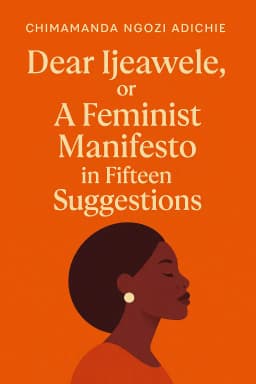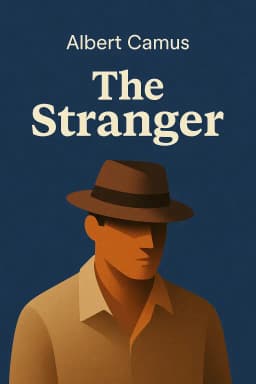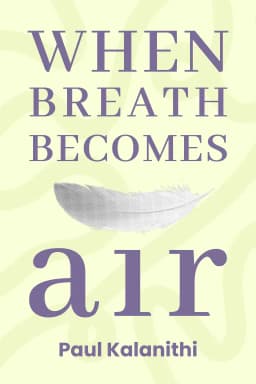
Wilde's Portrait of a Monster
Golden Hook & Introduction
SECTION
Michael: We're all told to 'be yourself.' But what if your 'self' is a monster? What if the most beautiful person you know is also the most corrupt? Kevin: That’s a terrifying thought. Like, what if the person with the perfect Instagram feed is secretly a terrible human being? Which, now that I say it out loud, sounds entirely plausible. Michael: It’s more than plausible; it’s the core of a story where a man achieves eternal youth, but at the cost of his soul. And it’s a story that feels more modern today than when it was written. Kevin: I’m hooked. What are we talking about? Michael: We are diving headfirst into the dark, glittering world of Oscar Wilde's only novel, The Picture of Dorian Gray. Kevin: Oscar Wilde... the guy with all the witty one-liners, right? "I can resist everything except temptation." I feel like I know his quotes more than his life. Michael: Exactly. And his life is absolutely key here. He was a leading figure in the Aesthetic movement, which preached 'art for art's sake.' But this book, first published in 1890, was so scandalous for its themes of moral decay and hedonism that it was actually used against him in the infamous trial that ultimately sent him to prison. Kevin: Wait, really? The book was evidence? Michael: It was presented as proof of his 'immoral' character. This is a novel that, in a very real way, contributed to its creator's tragic downfall. It’s a story that haunted him, and it’s about to haunt us today. Kevin: Okay, the stakes just got incredibly high. Where does a story like that even begin? Michael: It all starts in a place that seems perfectly innocent: a sun-drenched artist's studio. But it's here, among the scent of roses and lilac, that the poison is first administered.
The Faustian Bargain: The Seduction of Eternal Beauty
SECTION
Michael: We open in the studio of a painter named Basil Hallward. He's a brilliant artist, but he's completely captivated by his latest subject, an impossibly beautiful young man named Dorian Gray. He’s just finished a full-length portrait of Dorian, and he tells his friend, Lord Henry Wotton, that it’s the best thing he’s ever done. Kevin: So far, so good. A talented artist and a beautiful model. What’s the problem? Michael: The problem is Basil’s obsession. He confesses to Lord Henry that he can’t exhibit the painting. He says, "I have put too much of myself into it." He feels that the portrait reveals the secret of his own soul, his "artistic idolatry" of Dorian Gray. Kevin: Hold on. The artist is that obsessed? This isn't just a simple portrait session. It sounds like Basil is already putting Dorian on a dangerous pedestal. Michael: Completely. He worships Dorian's beauty. And into this emotionally charged space walks the man who will light the fuse: Lord Henry Wotton. If Basil is the angel on Dorian’s shoulder, Lord Henry is the devil, and he is infinitely more charming. Kevin: What kind of devil are we talking about? Michael: The kind who speaks in beautiful, poisonous paradoxes. He’s a cynical, witty aristocrat who sees life as a performance. He immediately starts dropping these philosophical bombs on the young, impressionable Dorian. He says things like, "The only way to get rid of a temptation is to yield to it." And, "The aim of life is self-development. To realize one’s nature perfectly." Kevin: That sounds like the most dangerous advice ever. He's basically giving this kid a free pass to do whatever he wants, cloaked in fancy intellectual language. It’s like a 19th-century self-help guru for sociopaths. Michael: That’s a perfect way to put it. And Dorian, who has been sheltered and is just beginning to understand his own power, is completely captivated. Lord Henry is telling him that his greatest asset—his youth and beauty—is fleeting. He says, "There is absolutely nothing in the world but youth!" Kevin: That’s a cruel thing to say to someone, especially when they’re at the peak of their beauty. It’s like giving someone a perfect gift and then telling them it’s going to self-destruct. Michael: Precisely. And it works. When Basil finally unveils the finished portrait, Dorian is stunned by his own beauty, but then filled with a sudden, chilling horror. He realizes that the man in the painting will remain young and perfect forever, while he, the real Dorian, is doomed to grow old, wrinkled, and ugly. The joy of seeing the masterpiece turns to ash in his mouth. Kevin: And this is where the wish comes in, isn't it? I can feel it coming. Michael: It’s the pivotal moment of the book. In a fit of passionate despair, Dorian cries out, "If it were I who was to be always young, and the picture that was to grow old! For that—for that—I would give everything! Yes, there is nothing in the whole world I would not give! I would give my soul for that!" Kevin: And you just know, somewhere, a contract was signed in blood. He makes a classic Faustian bargain. Michael: He does. And in that moment, the supernatural machinery of the story kicks in. Basil, horrified by Dorian’s outburst, tries to destroy the painting, but Dorian stops him, crying out, "It would be murder!" He already sees the painting as a part of himself. Kevin: Wow. So he’s already possessive of this version of himself that will never fade. The trap is set. Does he know, at this point, that his wish has actually been granted? Michael: Not yet. But the first proof is just around the corner, and it’s absolutely brutal. It comes in the form of his first real love, and his first act of profound cruelty.
The Double Life: The Corruption of the Soul and the Decay of the Portrait
SECTION
Kevin: Okay, so he’s made this deal with the devil, or with the universe, or whatever. He’s going to stay young and beautiful forever. How does he test it out? Michael: It happens through a young actress named Sibyl Vane. Dorian, now fully under Lord Henry’s influence, is wandering through London's slums looking for "sensations" when he stumbles into a grimy, third-rate theatre. On stage is a seventeen-year-old girl, Sibyl, and she is a genius. Kevin: A genius? In a rundown theatre? Michael: According to Dorian, yes. He says she’s transcendent. One night she’s Juliet, the next she’s Rosalind from As You Like It. He falls madly in love, not with Sibyl herself, but with the art she creates. He sees her as the embodiment of every great heroine. He even tells Lord Henry, "I have kissed Juliet on the mouth." Kevin: Okay, so a little bit of hope? Maybe love can save him from Lord Henry's cynical influence. He’s found something pure. Michael: You would think so. He gets engaged to her. He brings Lord Henry and Basil to the theatre to witness her brilliance. He’s ecstatic. But this is where Wilde delivers the first truly devastating twist. Kevin: I’m bracing myself. Michael: That night, Sibyl’s performance is a complete disaster. It’s wooden, artificial, lifeless. The audience is booing. Lord Henry and Basil are embarrassed. Dorian is mortified. After the show, he storms backstage to confront her. Kevin: What happened? Did she just have an off night? Michael: It’s much deeper than that. Sibyl, with tears of joy in her eyes, tells him, "Dorian, before I knew you, acting was the one reality of my life. But you have taught me what reality really is. I can’t pretend to be in love on stage anymore, because I am in love with you. The stage is all shadows, but you are my sunlight." Kevin: Whoa. So her real love for him destroyed her ability to fake it. That's actually incredibly romantic and tragic. Michael: It is. But Dorian doesn't see it that way. He is disgusted. His love was for the artist, the illusion. Now that she’s just a real girl in love, she’s worthless to him. He looks at her coldly and says, "You have killed my love. You used to stir my imagination. Now you don't even stir my curiosity. You are nothing to me now." He leaves her sobbing on the floor. Kevin: That is monstrous. Absolutely brutal. He destroys her for... a bad performance? But really, for becoming a real person. Michael: Exactly. He valued the artifice over the human being. He goes home, filled with a strange mix of emotions, and he happens to glance at the portrait Basil painted. And for the first time, he sees it. Kevin: The change. Michael: A subtle but unmistakable change. Around the mouth of the painted face, there is a new touch of cruelty in the expression. A sneer. His wish has come true. The canvas is now the diary of his actions. It will bear the burden of his sins. Kevin: And Sibyl? What happens to her? Michael: The next day, Lord Henry arrives to tell him the news. Sibyl Vane has killed herself. Kevin: Oh, man. And Dorian's reaction? Michael: This is where the horror deepens. After the initial shock, he tells Lord Henry that it all seems "far too wonderful for tears." He sees her death not as a human tragedy, but as a "marvellous tragic ending." He’s already started to view his own life as a spectator, a piece of art. The portrait has taken the sin, leaving him free to just... observe. Kevin: So he feels no guilt? Michael: He feels a flicker of it. He even writes a letter of apology before he knows she's dead. But Lord Henry's influence is too strong. He convinces Dorian that he shouldn't feel responsible, that this is just a beautiful, dramatic chapter in his life. And Dorian chooses to believe him. He chooses the path of no consequences.
The Inescapable Reckoning: Murder, Paranoia, and Self-Destruction
SECTION
Michael: This night sets the pattern for the next eighteen years. Dorian locks the portrait away in a dusty, unused schoolroom at the top of his house. And he begins to lead a double life. Kevin: What does that double life look like? Michael: Publicly, he remains the epitome of charm and grace. He’s a patron of the arts, a host of elegant parties, and he never seems to age a day, which becomes a source of wonder and gossip in London society. But privately, he descends into every kind of vice. He’s seen in the foulest opium dens, he consorts with thieves and criminals, and his influence seems to ruin the lives of every young man he befriends. Kevin: So he’s a socialite by day and a fiend by night. And all the while, the painting in the attic is... Michael: ...becoming a horror. Periodically, Dorian goes up to the locked room with a mirror. He looks at his own perfect, unblemished face, and then he unveils the portrait. He watches with a kind of monstrous delight as the painting festers, its face growing bloated, cruel, and aged with every sin he commits. It’s a record of his soul's decay. Kevin: That is the stuff of nightmares. It’s his secret diary of sin. But secrets like that can't be kept forever, can they? Someone has to find out. Michael: They can't. And the person who brings it all to a head is the man who started it all: Basil Hallward, the artist. Nearly two decades later, on the eve of Dorian’s thirty-eighth birthday, Basil confronts him. He’s about to leave for Paris and tells Dorian he’s heard the most terrible rumors about him—about the lives he’s destroyed, the reputations he’s shattered. Kevin: And Basil still can't believe it, right? Because Dorian still looks like an angel. Michael: Exactly. Basil says, "Sin is a thing that writes itself across a man’s face. It cannot be concealed." He begs Dorian to deny the rumors. But Dorian, in a moment of cruel, twisted pride, says he can't. Instead, he offers to show Basil his soul. Kevin: He’s going to show him the painting. After all these years. Michael: He leads Basil up to the locked schoolroom, a place of his supposed childhood innocence, and with a dramatic flourish, he tears the cover from the portrait. Kevin: What is Basil’s reaction? I can’t even imagine. Michael: Pure horror. He sees this hideous, leering, corrupted thing on the canvas and at first doesn't even recognize his own work. Then he sees his signature in the corner and he’s just shattered. He cries out, "This is the face of a satyr! It is the face of my own soul." He realizes the rumors are true and begs Dorian to get on his knees and pray for repentance. Kevin: But it’s too late for that, isn't it? Michael: Far too late. As Basil pleads with him, an uncontrollable feeling of hatred for the artist washes over Dorian. He blames Basil for painting the portrait, for feeding his vanity, for starting this whole nightmare. He sees a knife lying on a nearby chest—the same knife he will later use on the portrait—and he grabs it. Kevin: No... Michael: He stabs Basil again and again, murdering him right there in the attic, next to the hideous image of his own soul. Kevin: Wow. From a bad breakup to cold-blooded murder. The descent is complete. There’s no coming back from that. Michael: There isn't. And the rest of the book is a frantic, paranoid spiral. He blackmails a former friend, a chemist named Alan Campbell, into using science to dissolve Basil's body, leaving no trace. But Dorian is haunted. He’s pursued by Sibyl Vane’s vengeful brother. He’s terrified. He finally decides that the only way to be free, to find peace, is to destroy the last piece of evidence, the source of his torment: the portrait. He wants to "kill the past."
Synthesis & Takeaways
SECTION
Kevin: But he can't, can he? Because the portrait is his past. It is his soul. Michael: Exactly. In a final, desperate act, he goes back to the attic. He looks at the painting, now dripping with painted blood after the murder of Basil, and he decides that destroying it will kill his conscience and set him free. He grabs the same knife he used to kill the artist. Kevin: And he stabs the painting. Michael: He does. The servants downstairs hear a terrible, agonizing cry and a crash. They run for help, and when they finally manage to break down the door to the locked room, they find a magnificent portrait of their master, Dorian Gray, hanging on the wall, as beautiful and youthful as the day it was painted. Kevin: And Dorian? Where is he? Michael: Lying on the floor is the body of a withered, wrinkled, and loathsome old man, with a knife plunged into his heart. The servants have no idea who it is. Kevin: Chills. That gives me chills. Michael: It's only when they examine the rings on his fingers that they recognize him. Kevin: Whoa. So in trying to kill his soul, he killed himself. The moment he tried to destroy the record of his sins, all those sins returned to him in an instant. That is one of the most powerful endings in literature. Michael: It’s a profound and devastating statement on art, morality, and identity. Oscar Wilde, who was criticized for living a life of 'style over substance,' wrote the ultimate cautionary tale about that very idea. He shows that beauty without goodness is just a mask, and a life lived only for pleasure, without consequence, ultimately consumes itself. You can't separate your actions from who you are. Kevin: It really makes you think about all the ways we try to present a perfect 'portrait' of ourselves to the world, especially now, in the digital age. We curate our feeds, hide our flaws, and present this eternally smiling, successful version of ourselves. It makes you wonder... what are we hiding in our own attics? Michael: That’s the question Wilde leaves us with, and it feels more urgent and relevant today than ever. The technology has changed, but the human temptation to trade our soul for a perfect image remains the same. Kevin: A truly timeless and terrifying story. We'd love to hear what you think. What's the modern equivalent of Dorian's portrait? Join the conversation on our social channels and share your thoughts. We're always curious to hear your take. Michael: This is Aibrary, signing off.









